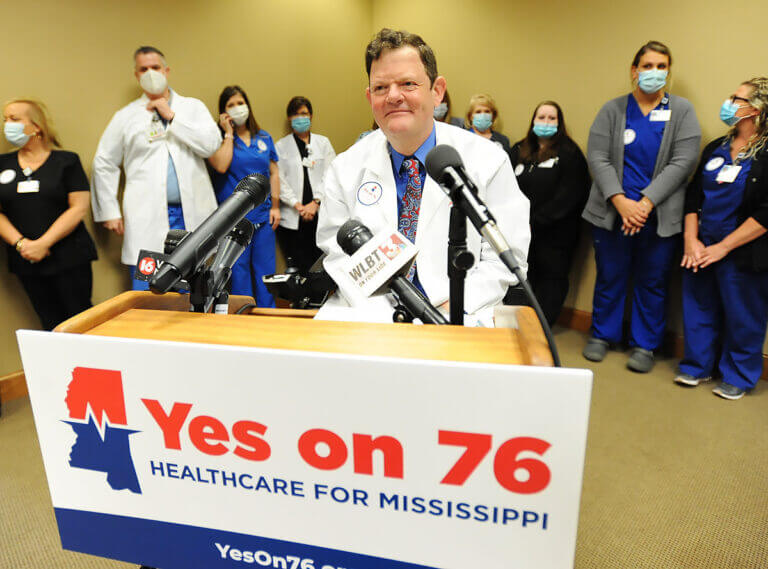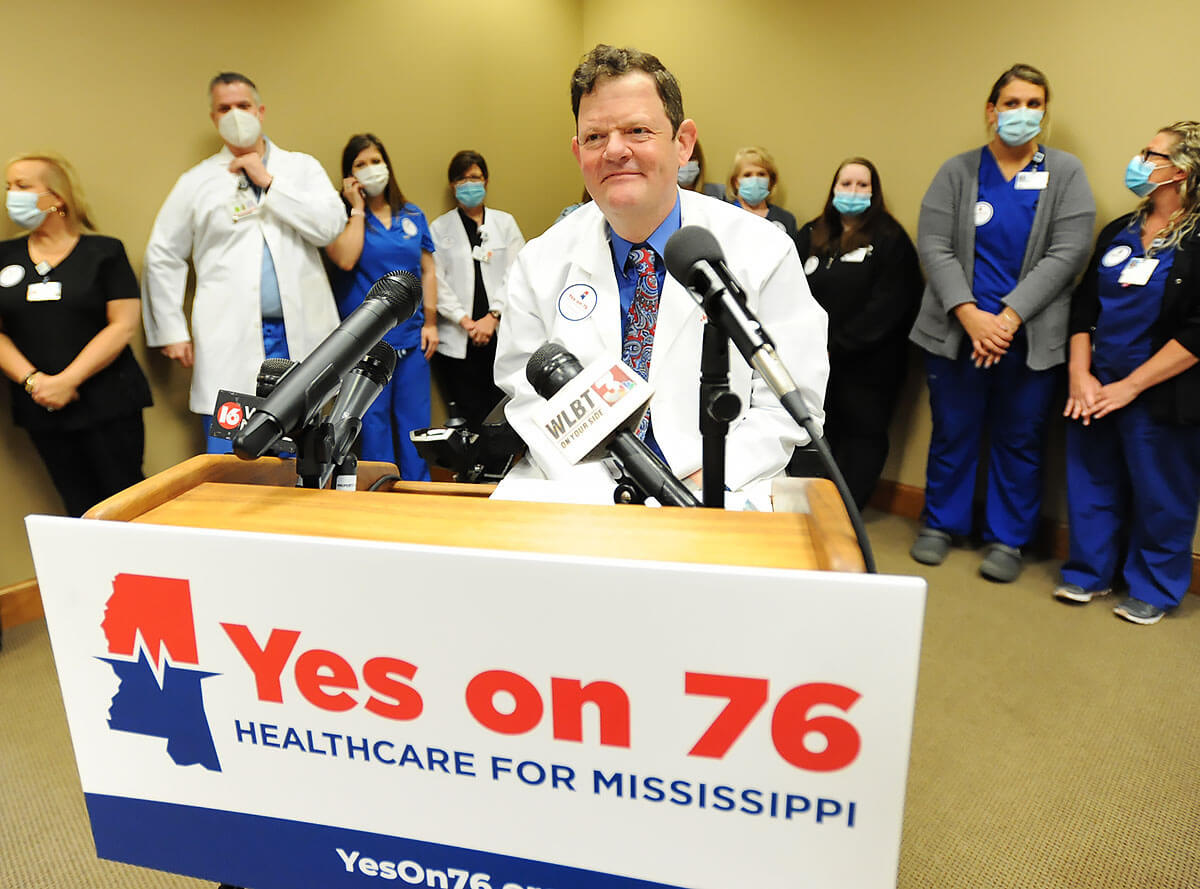

Editor’s note: This essay is part of Mississippi Today Ideas, a platform for thoughtful Mississippians to share fact-based ideas about our state’s past, present and future. You can read more about the section here.
I’m a retired pediatrician and current medical educator. I’ve dedicated my life to caring for patients, training the next generation of physicians and advocating for healthcare access.
I also happen to live with a disability and use a wheelchair. For me, Medicaid is much more than a policy issue—it’s personal.
Despite the passage of the federal One Big Beautiful Bill Act, the most significant reductions in Medicaid funding will not take effect for at least two years, giving Congress an opportunity to correct its own mistake. Congress should mitigate the impacts of this legislation to help ensure patient access to care.
Beyond providing care for half of America’s children, Medicaid covers older adults, those in between jobs and people living with disabilities. Many of the people I’ve worked with – although not technically “disabled” – are still unable to work full time due to undiagnosed health conditions, limited access to employment and other barriers. Medicaid is often the only safeguard standing between them and disaster.
I often reflect on my early experience as a pediatrician during the rollout of the Children’s Health Insurance Program (CHIP) in the late 1990s. Until then, I had assumed most children had coverage, but when my clinic began accepting CHIP, I saw just how many families had been previously left behind.
That moment showed me just how essential healthcare advocacy is in my profession, which is why I strive to instill a passion for advocacy in the next generation of doctors.
Medicaid plays an outsized role in states like Mississippi where 60% of its recipients live in a rural area. In these underserved areas, Medicaid keeps clinics open and doctors caring for patients. Cutting the program now, when Americans and our healthcare systems are already struggling, would be heartbreaking.
Pediatric practices like mine will struggle to provide access, diagnoses and treatments might come later and at increased cost, and families will lose access to preventive care that keeps children out of the hospital.
My decades of work in Mississippi, particularly with children facing chronic conditions, have shown me how essential Medicaid remains.
Now, I’m deeply disappointed that the national conversation has shifted from expanding Medicaid access to protecting its survival.
After years working with civic and medical leaders to broaden Medicaid coverage, I now find myself forced to defend the program’s very existence.
Beyond providing for children, Mississippi nursing homes depend on Medicaid more than almost any other state, with nearly three in four residents enrolled in Medicaid. Cuts to the program would result in fewer staff and reduced services while placing a larger strain on facilities. Furthermore, even though seniors and people with disabilities make up just 35% of enrollees, they account for 66% of total Medicaid spending, illustrating the program’s role in supporting these vulnerable groups.
Although the One Big Beautiful Bill Act has been signed into law, implementation of Medicaid cuts still hangs in the balance. For example, of the nearly $1 trillion that is currently expected to be cut, the most impactful provisions won’t take place until 2027 or 2028, such as caps on provider taxes and state-directed payments, which help keep rural clinics open and operating.
Congress has ample time to reverse course and put patients first. Before the full severity of these cuts are implemented, lawmakers should roll back harmful cuts and changes to Medicaid to safeguard all Americans, as well as the hospitals and health systems that children, families and seniors depend on.
Bio: Dr. John Gaudet is a native Mississippian who has practiced pediatrics in Hattiesburg for many years. Since retirement, he has been involved in medical education, helping to train the next generation of physicians.
- Former Greenwood police officer pleads guilty to federal drug trafficking charges - February 27, 2026
- UMMC officials say normal operations will resume Monday after cyberattack - February 27, 2026
- Hinds County public defender: Office needs additional funding to avert constitutional crisis - February 27, 2026